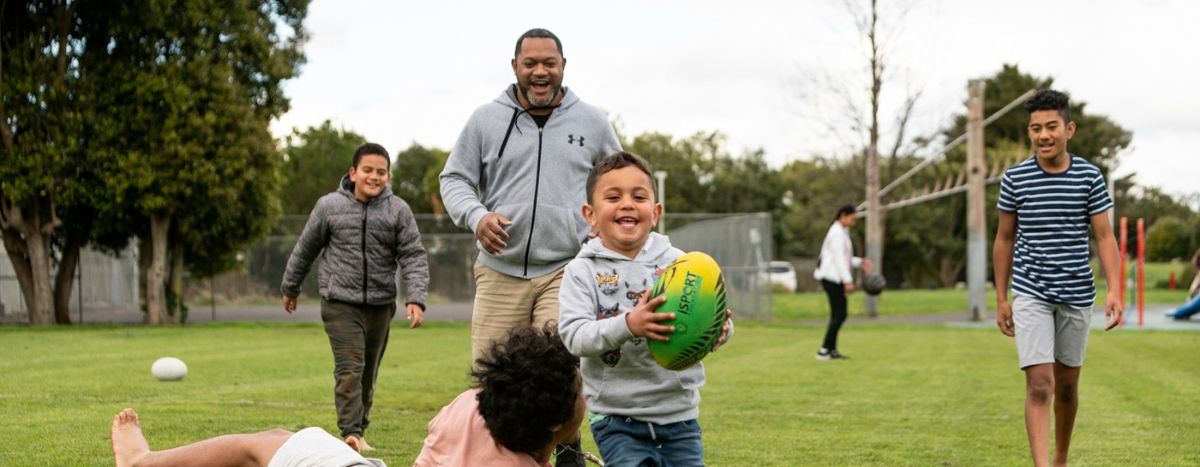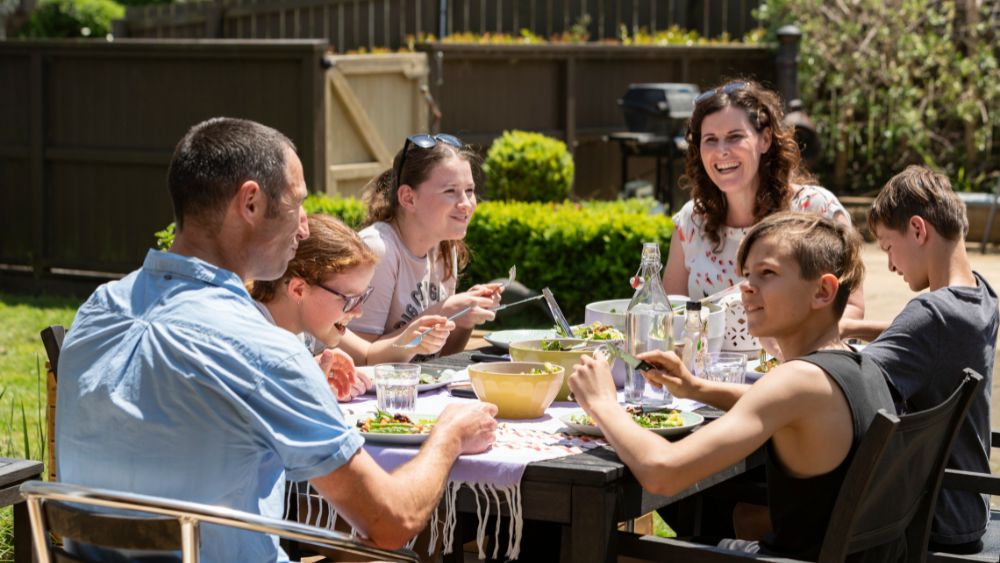Check out these tips from Dave Monro, the Heart Foundation’s Chief Advisor, Food and Nutrition, on ways you can be more active to support better heart health.
How much physical activity do I need and what counts?
The latest advice from the Heart Foundation is that at least 2.5 hours (150 minutes) of moderate-intensity physical activity each week, or 75 minutes of vigorous-intensity activity, is needed.
Moderate-intensity activity should make you breathe harder than normal, and the great thing is that household activities like cleaning, vacuuming, mopping and gardening all count. Vigorous-intensity physical activity is where it's hard to say more than a few words. This could include jogging, spin classes, high intensity interval training (HIIT) and aerobics.
Every minute counts. If you do more physical activity than this, it's even better for your heart health.
Dave’s advice: “There are lots of different forms of activity. It’s important to remember that even the small things count and doing something is better than nothing. The best type of activity is one that you enjoy and will keep doing over time.”
How harmful is too much sitting?
The Heart Foundation’s position statement on physical activity and sedentary behaviour identifies that those who sit the most have a 29% greater risk of heart disease those who sit the least.
Regular physical activity has a positive effect on many risk factors for heart disease such as blood pressure, cholesterol, insulin sensitivity and body weight, as well as helping to increase fitness.
Getting active is not only good for your heart, but it also helps to clear the mind and is positive for mental health too. People who self-reported higher physical activity levels were 20-22% less likely to develop depression and anxiety.
Ralph Maddison, Professor of Physical Activity at Deakin University and advisor to the Heart Foundation: “The evidence highlights that excessive sitting increases our heart disease risk, and this is particularly true for people who don’t meet current physical activity recommendations. Sitting occupies many adults’ waking hours and if New Zealanders were able to build more movement into their day even by a small amount, it would have an important public health impact.”
More information: Find our latest advice, tips and tools to help you to sit less and move more.
How do I reduce my sitting time?
For some people, working from home may give more flexibility and time for physical activity - but for others it may mean less. Those working from home may miss out on physical activity associated with their commute like walking to the bus stop, walking around the office, taking the stairs, attending meetings or popping out of the building for a coffee break.
The important thing is to reduce and limit long periods of sitting and to incorporate any type of movement during the day. If you’re working from home, then even small amounts of activity throughout the day can provide the same benefits as a longer session.
Dave’s advice: “Building in short bursts of physical activity such as hanging out the washing, kicking a ball around with kids, walking to the letterbox or a brisk stroll around the block are great ways to break up the day when you’re working from home. When you go into work, take the stairs, park a bit further away, get up and go chat to a colleague instead of sending an email, walk to your meetings, and even hold standing or walking meetings.”
More information: New Zealand is also blessed with lots of outdoor areas. Find out the great things you can do in parks this summer.
How do I make a start on being more active?
It's never too late to start. The good news is that people who don't do anything have the most to gain and your health will improve as you start to move.
Over time you'll be surprised at how quickly your body gets used to more activity. As your fitness increases you may be able to be active for longer, or be able to add in new ways to increase your fitness level (like adding in hills when you're walking).
If you haven't been active for some time, start with small amounts of light activity, stretch and gradually increase the number of days and the length of time you're active.
Dave’s advice: “Getting started is easier than you think. Changing a few daily habits will soon add up to a more active you. Be active in as many ways as possible every day. If you don’t think you can squeeze a longer activity session into your day, then see if you can reduce the time that you spend sitting and free up smaller timeframes for being active.”
More information: If you have had any sort of heart event, find out the importance of exercise.
Making sitting less and moving more your new health focus
The New Year is a good time to reset, refresh and focus on the year ahead. For many people, being more active may be a more realistic change that can be sustained over the longer period than trying to change other lifestyle behaviours.
Dave’s advice: “When thinking about increasing your activity, remember:
Start small – set a realistic goal. If you're new to exercise, even 5-10 minutes a day might be enough. Build up slowly.
Block out time in your day for exercise, even if it's just a walk to the shops.
Ask family, whānau or friends to join you – build activity into your catch-ups like going for a walk or a hike. Stay safe.
Know your limits and stop if you feel any pain or discomfort – gradually increase the amount you do. Go for a little longer or a little further.
If you are at higher risk or have a heart condition, always check with your GP before changing your exercise routine.”
More information: Check out the Heart Foundation’s blogs







